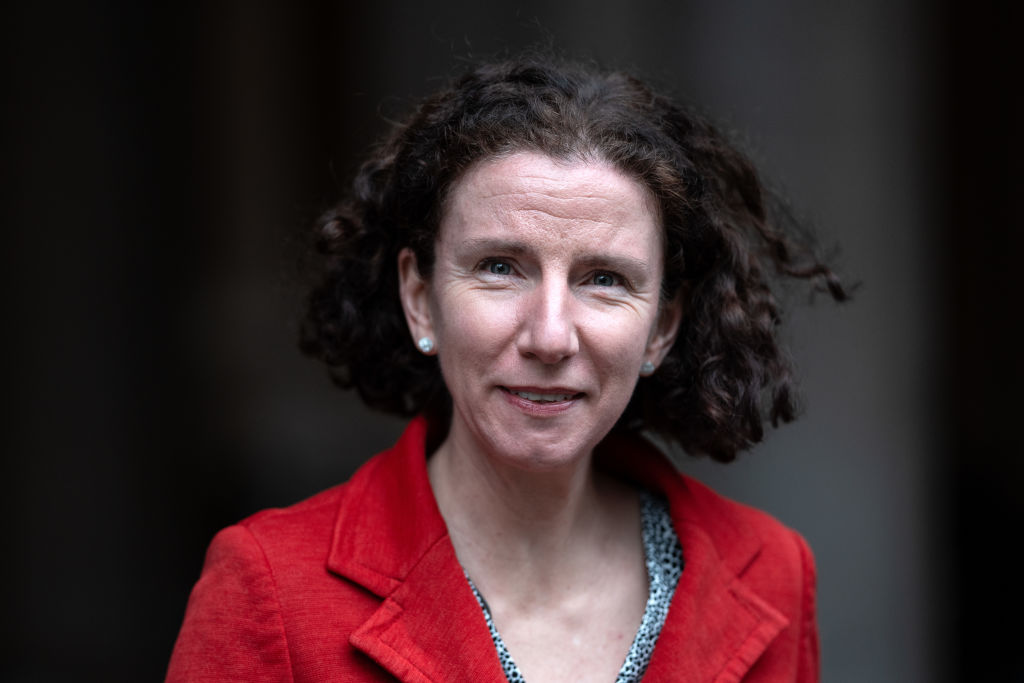The UK signed up to a UN target of spending 0.7 per cent of GNP on aid way back in 1970, but didn’t hit that level until 2013. In 2020, aid spending was cut to 0.5 per cent and last week Keir Starmer reduced it further to 0.3 per cent. This will save about £4 billion which will instead be allocated to military spending.
There were predictable howls of anguish from aid advocates at the news, and the development minister resigned. There was also begrudging praise from Starmer’s Conservative opponents. But few seemed to question what the point of aid is, and whether a spending target, at any level, makes sense.
Aid spending enjoyed almost universal political support for most of this century, primarily because it served different purposes to different people. To the left it was a way to assuage us of our limitless colonial guilt. To the right it was a relatively low-cost means of avoiding being called nasty, an image cleanser like net zero. To politicians of all stripes it was an opportunity to flaunt their generosity and internationalist credentials.
Behind the scenes, aid has always been a game of semantics, stretched definitions and creative accounting. The OECD specifies a complicated equation for what counts as aid, which countries qualify and how investments and loans should be treated. Military spending and peacekeeping are strictly excluded, even though there are clearly circumstances where that will be the best way to help a country. Meanwhile, housing asylum seekers, which by 2022 accounted for a third of our aid (£3.5 billion), is included, even though we are doing it reluctantly and there is no visible benefit to developing countries.
Selling aid to the voters has become an exercise in itself. The easiest pitch is that this is emergency humanitarian assistance which saves lives. The British public rank highly for charitable giving and donate generously whenever disasters occur. Unfortunately, life-saving interventions account for a small fraction of the overall aid budget. The vast majority is spent on more speculative long-term development initiatives.
I spent five years delivering such projects: advising the government in Nigeria on misguided electricity privatisations, attempting to convince Nepali farmers that a few consultants knew how to do their jobs better, and floundering around in Liberia trying to look useful. There are many other examples of egregious waste, but these don’t in themselves invalidate the overall endeavour, provided the aggregate results justify the costs. No-one would blame a venture capitalist for backing a few duds.
Sometimes, however, aid becomes actively damaging. In 2020, Penny Goldberg, then chief economist of the World Bank, published with several economists a paper called ‘Elite Capture of Foreign Aid’. They showed that aid flows fuel corruption and enrich those in power. It follows that it can obstruct political progress and entrench corrupt regimes. Uganda, my home for several years, provides a good illustration: the autocratic President Yoweri Museveni has stayed in power for 39 years in part through his skill in wooing aid donors and enriching his supporters.
Much of my time was spent persuading governments to let us operate in their countries
When cracks appear in the altruism argument, aid advocates usually change tack and appeal to our self-interest: it is all for ‘soft power’. This is a tough line to rebut because it is so hard to get anyone to explain what this soft power is, how dishing out aid increases it, and what it can be used for. In my experience, our cultural exports (led by Premier League football), along with our language, values, media and monarchy do give us disproportionate influence around the world, but I saw little evidence that our aid budget curries much favour. Indeed, much of my time was spent persuading governments to let us operate in their countries, often with implicit sweeteners thrown in.
Sometime around 2015, an even more spurious line of argument was added: we need to spend money helping other countries because otherwise their desperate people will try to come to the UK. Pay up or face more immigration. I can only assume this was a creative attempt to appeal to voters’ perceived baser instincts. A similarly cynical threat has more recently been applied to climate change: go green or be overrun by immigrants. The only problem here is that the data suggests the opposite. In 2020 research showed that as poor countries get richer more people emigrate to richer countries, not fewer. Whether legal or illegal, it’s an expensive journey.
Perhaps it’s time to drop the mawkish moniker of ‘aid’, scrap the self-righteous target setting and save some money on the army of consultants tasked with counting it.







Comments